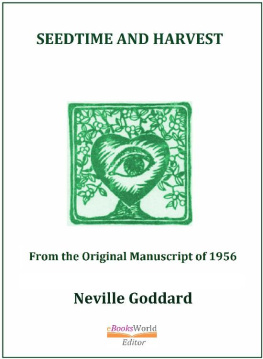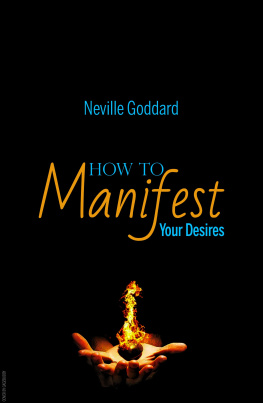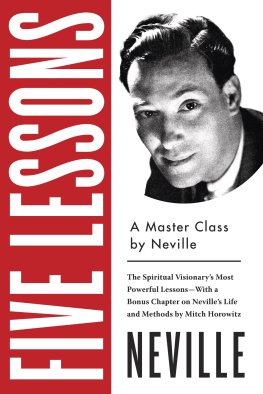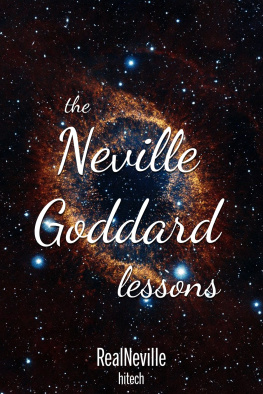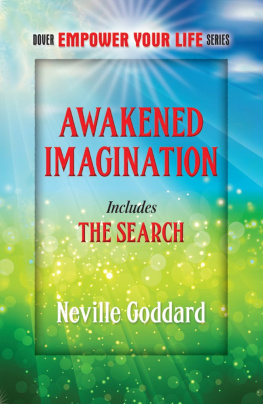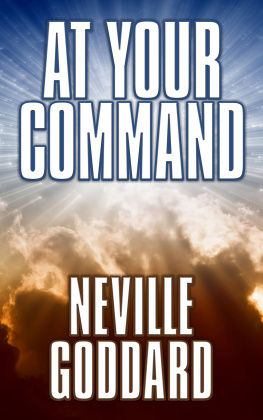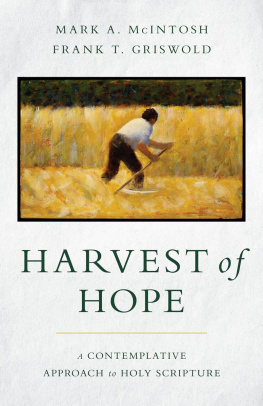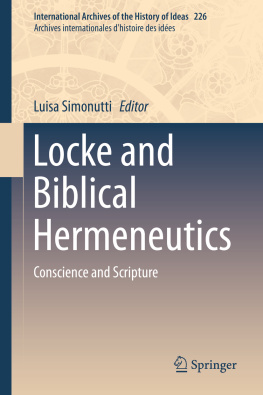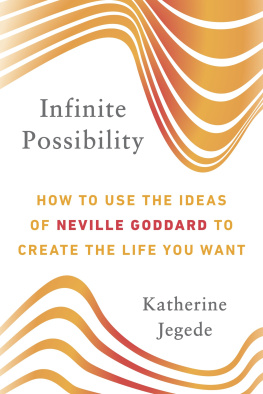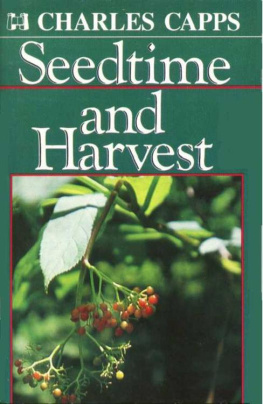Seedtime and Harvest
By
Neville Goddard
Form the Original Manuscript of 1956
ISBN: 9780463321287
CopyrightedMaterial
Ebooks World Editor

Contents
To All of you who apply what you read in this book,
and, by doing, create a finer world.
"I Give you the end of a golden string; Only wind it into a ball,
It will lead you in at Heaven's gate, built in Jerusalem's wall."
- Blake
In the following essays I have tried to indicate certain ways of approach to the understanding of the Bible and the realization of your dreams.
"That ye be not slothful, but followers of them who through faith and patience inherit the promises" [Hebrews 6:12].
Many who enjoy the old familiar verses of Scripture are discouraged when they themselves try to read the Bible as they would any other book because, quite excusably, they do not understand that the Bible is written in the language of symbolism.
Not knowing that all of its characters are personifications of the laws and functions of mind; that the Bible is psychology rather than history, they puzzle their brains over it for awhile and then give up. It is all too mystifying. To understand the significance of its imagery, the reader of the Bible must be imaginatively awake.
According to the Scriptures, we sleep with Adam and wake with Christ. That is, we sleep collectively and wake individually.
"And the Lord God caused a deep sleep to fall upon Adam, and he slept" [Genesis 2:21].
If Adam, or generic man, is in a deep sleep, then his experiences as recorded in the Scriptures must be a dream. Only he who is awake can tell his dream, and only he would understand the symbolism of dreams can interpret the dream.
"And they said one to another, Did not our heart burn within us, while He talked with us by the way, and while He opened to us the Scriptures?" [Luke 24:32].
The Bible is a revelation of the laws and functions of Mind expressed in the language of that twilight realm into which we go when we sleep.
Because the symbolical language of this twilight realm is much the same for all men, the recent explorers of this realm - human imagination - call it the "collective unconscious".
The purpose of this book, however, is not to give you a complete definition of Biblical symbols or exhaustive interpretations of its stories. All I hope to have done is to have indicated the way in which you are most likely to succeed in realizing your desires.
"What things soever ye desire " can be obtained only through the conscious, voluntary exercise of imagination in direct obedience to the laws of Mind. Somewhere within this realm of imagination there is a mood, a feeling of the wish fulfilled which, if appropriated, means success to you.
This realm, this Eden - your imagination - is vaster than you know and repays exploration. "I Give you the end of a golden string". You must wind it into a ball.
The four mighty ones
"And a river went out of Eden to water the garden; and from thence it was parted, and became into four heads" [Genesis 2:10].
"And every one had four faces" [Ezekiel 10:14].
"I see four men loose, walking in the midst of the fire, and they have no hurt; and the form of the fourth is like the Son of God" [Daniel 3:25].
"Four Mighty Ones are in every man" (Blake).
The "Four Mighty Ones" constitute the selfhood of man, or God in man. There are "Four Mighty Ones" in every man, but these "Four Mighty Ones" are not four separate beings, separated one from the other as are the fingers of his hand.
The "Four Mighty Ones" are four different aspects of his mind, and differ from one another in function and character without being four separate selves inhabiting one man's body.
The "Four Mighty Ones" may be equated with the four Hebrew characters: (characters here) which form the four-lettered mystery-name of the Creative Power from and combining within itself the past, present and future forms of the verb "to be".
The Tetragrammaton is revered as the symbol of the Creative Power in man - I AM - the creative four functions in man reaching forth to realize in actual material phenomena qualities latent in Itself.
We can best understand the "Four Mighty Ones" by comparing them to the four most important characters in the production of a play.
"All the world's a stage, And all the men and women merely players; They have their exits and their entrances; And one man in his time plays many parts (As You Like It - Act II, Scene VII).
The producer, the author, the director and the actor are the four most important characters in the production of a play. In the drama of life, the producer's function is to suggest the theme of a play. This he does in the form of a wish, such as, "I wish I were successful" , "I wish I could take a trip" , "I wish I were married and so on. But to appear on the world's stage, these general themes must somehow be specified and worked out in detail. It is not enough to say "I wish I were successful" that is too vague. Successful at what? However, the first "MightyOne" only suggests a theme.
The dramatization of the theme is left to the originality of the second "Might One", the author. In dramatizing the theme, the author writes only the last scene of the play - but this scene he writes in detail.
The scene must dramatize the wish fulfilled. He mentally constructs as life-like a scene as possible of what he would experience had he realized his wish. When the scene is clearly visualized, the author's work is done.
The third "Mighty One" in the production of life's play is the director. The director's tasks are to see that the actor remains faithful to the script and to rehearse him over and over again until he is natural in the part. This function may be likened to a controlled and consciously directed attention an attention focused exclusively on the action which implies that the wish is already realized.
"TheformoftheFourthisliketheSonofGod" - human imagination, the actor. This fourth "Mighty One" performs within himself, in imagination, the predetermined action which implies the fulfillment of the wish.
This function does not visualize or observe the action. This function actually enacts the drama, and does it over and over again until it takes on the tones of reality. Without the dramatized vision of fulfilled desire, the theme remains a mere theme and sleeps forever in the vast chambers of unborn themes. Nor without the co-operant attention, obedient to the dramatized vision of fulfilled desire, will the vision perceived attain objective reality.
The "Four Mighty Ones" are the four quarters of the human soul. The first is Jehovah's King, who suggests the theme; the second is Jehovah's servant, who faithfully works out the theme in a dramatic vision; the third is Jehovah's man, who was attentive and obedient to the vision of fulfilled desire, who brings the wandering imagination back to the script "seventy times seven" . The "Form of the Fourth" is Jehovah himself, who enacts the dramatized theme on the stage of the mind.
"Let this mind be in you, which was also in Christ Jesus: Who, being in the form of God, thought it not robbery to be equal with God" [Philippians 2: 5,6].
The drama of life is a joint effort of the four quarters of the human soul.
"All that you behold, tho' it appears without, it is within, in your imagination, of which this world of mortality is but a shadow"
Next page
